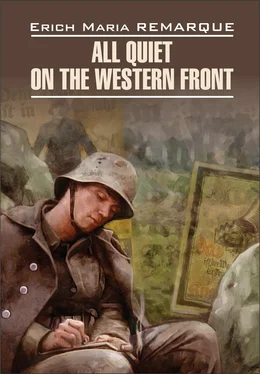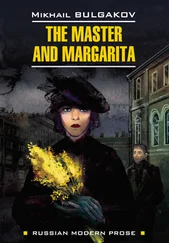For the later generations, the novel has lost none of its power. It presents within a small space a surprisingly broad picture of a modem, mechanized war, and whether or not some subsequent wars have been justified (or have been at least explicable), this war is understood by no one.
The novel shows us very clearly that war is something else: war is not about heroism, but about terror, either waiting for death, or trying desperately to avoid it, even if it means killing a complete stranger to do so, about losing all human dignity and values, about becoming an automaton; it is not about falling bravely and nobly for one’s country (‘he was killed instantly’ was usually a He), but about soiling oneself in terror under heavy shellfire, about losing a leg, crawling blinded in no man’s land, or (in those telling hospital scenes) being wounded in every conceivable part of the body. Baumer and his fellow soldiers discuss the nature of the war and war itself, but they do not come to any real conclusions – nor could they. They are too young, they lack the background. But their naivety, their very inability to articulate an answer is the point of the book. Baumer dies. The reader is left to draw the conclusion.
The standard German texts are Im Westen nichts Neues (Berlin: Ullstein, 1929), translated into English by A. W. Wheen (London: The Bodley Head, 1929), with editions by Tilman Westphalen (Cologne: Kiepenheuer and Witsch, 1987) and with English introduction and notes by Brian Murdoch (London: Routledge, 1988).
Studies in English of Remarque and the work include: Christine R. Barker and Rex W. Last, Erich Maria Remarque (London: Wolff, 1979); C. R. Owen, Erich Maria Remarque. A Critical BioBibliography (Amsterdam: Rodopi, 1984); Modris Eksteins, Rites of Spring (London: Bantam, 1989); Brian Murdoch, Remarque: Im Westen nichts Neues (Glasgow: University of Glasgow, 1991).
accusation (n) – обвинение
agitation (n) – волнение, беспокойство
airman (n) – летчик
airtight (adj) – герметичный
amid (prep) – посреди
annex (v) – аннексировать
artificial (adj) – искусственный
artisan (n) – ремесленник
astonishment (n) – удивление
asylum (n) – психиатрическая лечебница
attempt (n) – попытка
army-issue (adj) – армейский
bankruptcy (n) – несостоятельность
barbed-wire (n) – колючая проволока
barmy (adj) – чокнутый
barrage (n) – шквальный огонь, обстрел
barrel (n) – ствол
bastard (n) – (груб.) ублюдок, мерзавец
battle-dress (n) – боевое обмундирование
be off (v) – (зд.) быть обеспеченным
beam (v) – расплыться в улыбке
bedstead (n) – каркас кровати
bee-line (n) – кратчайшее расстояние
beckon (v) – подзывать кивком головы
bewilderment (n) – замешательство
billet (n) – казарма, барак
bitterness (n) – горечь
blister (n) – мозоль
bloke (n) – (разг.) тип (о мужчине)
bloody-mindedness (n) – жестокость
bob up (v) – вынырнуть, вылезти
bulge (v) —вздуваться, вспучиваться
bunk (n) – двухъярусная кровать
carbolic (n) – карболовая кислота, карболка
cater (v) – снабжать продуктами
cavalryman (n) – кавалерист
cemetery (n) – кладбище
chap (n) – парень
chum (n) – дружище
civvies (n) – гражданская одежда
clink (n) – (разг.) губа (гаупвахта)
clodhopper (n) – сильно разношенная обувь
clog (v) – застревать
clout (n) – сильный удар
clumsy (adj) – неуклюжий
cohesion (n) – сила сцепления
colour up (v) – покраснеть (о лице)
cook-sergeant (n) – повар-сержант
comma (n) – запятая
compose (v) – успокаиваться
confession (n) – признание, откровение
contemplate (v) – иметь в виду, предположить
conviction (n) – убеждение
convivial (adj) – праздничный
cordite (n) – кордит (нитроглицериновый порох)
corkscrew (n) – бутылочный штопор
corn (n) – (брит.) пшеница
corporal (n) – унтер-офицер
coverlet (n) – покрывало
coward (n) – трус
crawl (v) – ползти
cudgel (n) – дубинка
curse (v) – сквернословить
dagger (n) – кинжал
damned (adj) – проклятый, чёртов
dawn (v) – осенить
decent (adj) – приличный, изрядный (о количестве), достойный
defiance (n) – демонстративное неповиновение
delight (n) – восторг, наслаждение
deserter (n) – дезертир
detest (v) – ненавидеть, питать отвращение
dig out (v) – раздобыть
dish out (v) – раскладывать кушанье
dissolve (v) – раствориться
Читать дальше
Конец ознакомительного отрывка
Купить книгу












